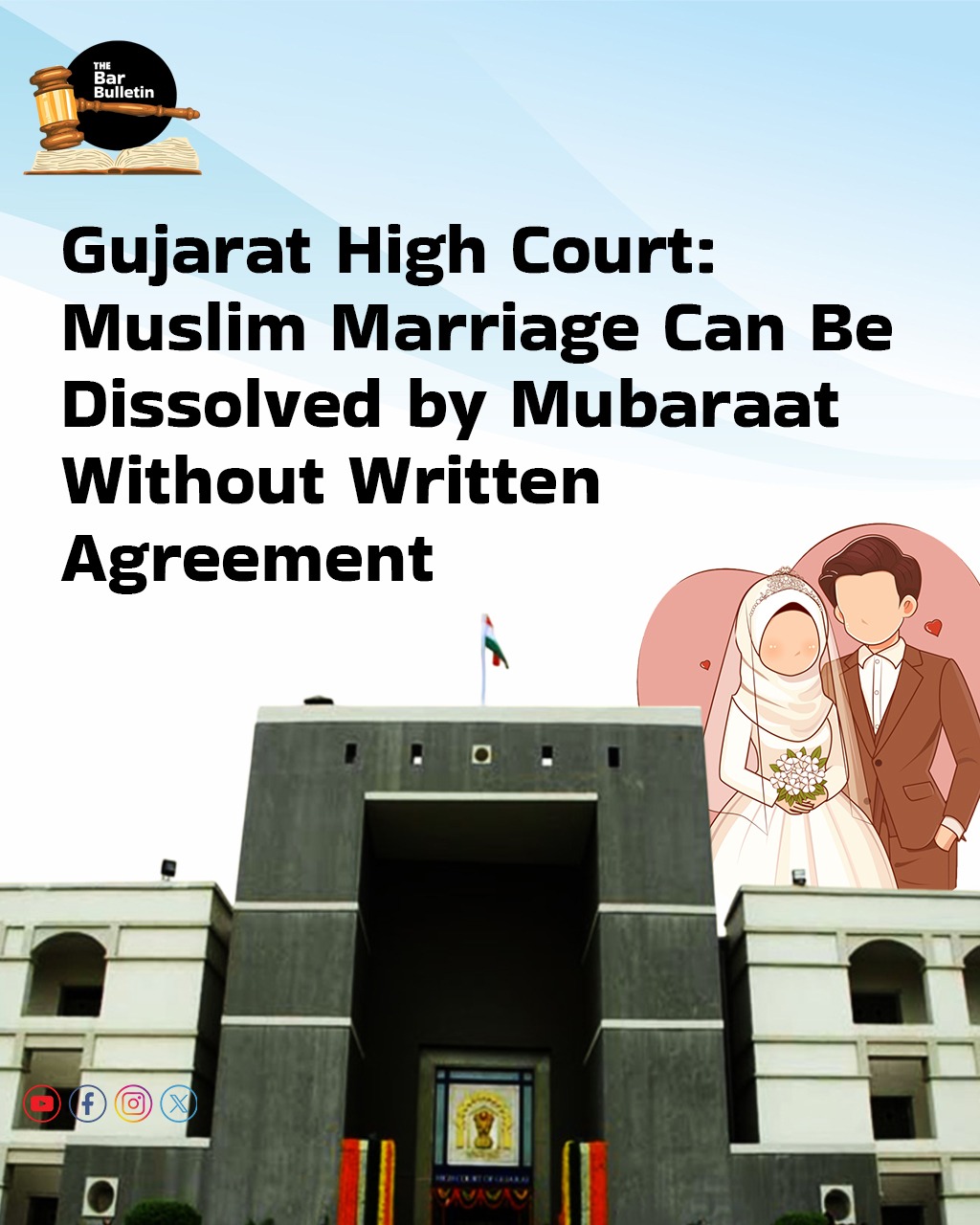The Gujarat High Court has ruled that a Muslim marriage can be dissolved through Mubaraat mutual consent divorce under Muslim personal law even without a written agreement.
A Division Bench of Justice A.Y. Kogje and Justice N.S. Sanjay Gowda passed the ruling while overturning a Rajkot Family Court order which had dismissed a joint plea by a Muslim couple on the ground that a written Mubaraat agreement was necessary. The High Court held that the essence of Mubaraat lies in the expression of mutual consent by both spouses to dissolve the Nikah, and that such dissolution is effective once consent is established, without the need for any written record.
The Court observed that there is no requirement in the Quran, the Hadith, or established Muslim personal law practices mandating that Mubaraat be recorded in writing or registered with an official authority. It further noted that just as a Nikahnama merely serves as formal recognition of the marital agreement without being an essential part of the Nikah itself, a written agreement is similarly not an essential element for Mubaraat.
The case arose from a marriage solemnised in 2021. The couple, who had been living separately for over a year due to irreconcilable differences, mutually agreed to end their marriage through Mubaraat and approached the Family Court for a declaration to that effect. The Family Court dismissed the plea for lack of a written agreement, prompting the couple to appeal.
Explaining the distinction between Mubaraat and Khula under Section 2 of the Muslim Personal Law (Shariat) Application Act, 1937, the Bench said that Mubaraat is based on mutual agreement between husband and wife, unlike Khula which is initiated by the wife. Finding that there is no legal or religious mandate for a written record of Mubaraat, the High Court concluded that the Family Court’s refusal to entertain the plea was unsustainable.
The matter has been remanded to the Family Court for a decision on merits, with a direction to conclude proceedings within three months.
Appearances:
Advocate Samrat R. Upadhyay represented the appellants, while Assistant Government Pleader Urvashi Purohit appeared for the State.
![]()

